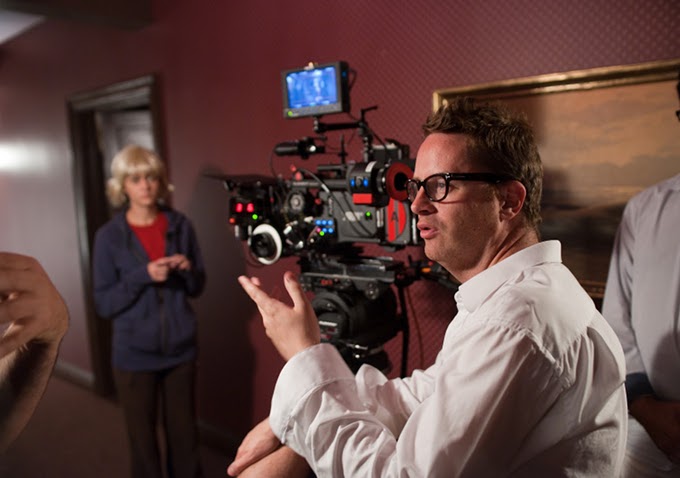 The great celluloid vs. digital debate continues, and if you haven’t seen it, you should definitely watch the Keanu Reeves-hosted doc "Side By Side" for an in depth look at the issue. On one side, you have early digital adopters like David Fincher and Steven Soderbergh. Then you have the purists like Christopher Nolan and Quentin Tarantino, who have worked to salvage Kodak film stock and with the latter going one step further and vowing to take out DCP projectors out of his New Beverly theater. Paul Thomas Anderson is another filmmaker hell-bent on shooting on film stock as well.
The great celluloid vs. digital debate continues, and if you haven’t seen it, you should definitely watch the Keanu Reeves-hosted doc "Side By Side" for an in depth look at the issue. On one side, you have early digital adopters like David Fincher and Steven Soderbergh. Then you have the purists like Christopher Nolan and Quentin Tarantino, who have worked to salvage Kodak film stock and with the latter going one step further and vowing to take out DCP projectors out of his New Beverly theater. Paul Thomas Anderson is another filmmaker hell-bent on shooting on film stock as well.
But then there’s Nicolas Winding Refn, the director of "Drive" who straddles both camps. A cineaste who recently joined PTA as a member of the The American Genre Film Archive advisory board, Refn is quite happy to shoot digitally. Filmmakers are usually divided on the subject, but Refn has a refreshingly non-purist view, one that values the past but also has an eye on the future.
"Digital is so much better. I shoot on digital, always. ‘Drive,’ ‘Only God Forgives’…’Bronson’ was the last film I shot on film, on Super 16mm," Refn said in an recent interview with Deadline. "It’s not a substitute, it’s just another canvas —and a canvas that has allowed more creativity than anything else in the world."
Many filmmakers usually lament the fact that younger audiences are likely going to be watching their IMAX-intended movie on iPads and soon iWatches, but Refn is happy to accept the fact that they’re just watching.
"Don’t try to fight it. Embrace it," he said of the digital film. "That’s a wonderful opportunity. We’re at the most exciting time since the invention of the wheel, in terms of creativity because distribution and accessibility have changed everything. A camera is still a camera whether it’s digital or not; there’s still sound; an actor is an actor."
Change is not already coming, it’s here and Refn sounds ahead of the curve. "Ninety-nine percent of what you do is going to be seen on a smart phone —I know this is the greatest thing ever made because it allows people to choose, watching what you do on this format or go into a theater and see it on a screen. That means more people than ever will see what I do, which is personally satisfying in terms of vanity. But you have to be able to adapt, to accept things in different order and length than we’re used to. We are in a very, very exciting time."
This raises interesting questions, because it’s clear that celluloid is preferred from a cinephile perspective. Just look at the texture in the trailer of last night’s "Inherent Vice" trailer and it’s hard to argue against it. But even PTA hasn’t decided whether he’s going to screen his latest movie on a film or DCP print at the New York Film Festival (and it sounds like the decision will come down to the wire).
A format is just a format and the content is really what’s king, right? Does the fetishization of celluloid have value? Lots to ponder, so share your throughts below.

